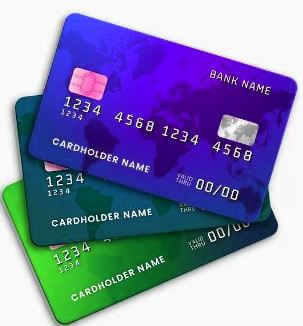What to do when you lose your debit or credit card ?
What to do when you lose your debit or credit card ?
Taking immediate steps can help safeguard your finances and personal information. Losing your debit or credit card can be a stressful experience, but it’s crucial to act quickly to minimize potential risks and inconveniences.
1. Stay Calm (when you lose your debit or credit card):
Take a deep breath and focus on the necessary actions, the first and most important step is to stay calm. Panicking may cloud your judgment.
2. Check Your Wallet and Surroundings:
Double-check your wallet and the immediate surroundings. It’s possible you misplaced it or left it somewhere nearby.
3. Contact Your Bank or Credit Card Issuer (when you lose your debit or credit card):
As soon as you confirm that your card is lost, contact your bank or credit card issuer immediately. Most financial institutions have a 24/7 hotline for reporting lost or stolen cards.
Provide them with details such as your account number and any recent transactions, If you have misplaced your debit or credit card its better to block your card temporarily and start searching for it may be you put it somewhere around you.
4. Freeze or Lock Your Card:
Many banks and credit card companies offer the option to freeze or lock your card temporarily. This prevents unauthorized transactions while you determine whether the card is lost or just misplaced. If you find the card later, you can typically unlock it.
5. Monitor Your Account:
Keep a close eye on your account activity for any unauthorized transactions. Most banks and credit card companies have online or mobile banking apps that allow you to monitor your account in real-time. Report any suspicious activity to your bank immediately.
6. File a Police Report:
Filing a police report can provide an official record of the loss. Some banks may require a copy of the report to process certain types of fraud claims. Check with your local police department on their procedure for reporting lost items.
7. Update Automatic Payments:
If you have automatic payments set up with your lost card, update the payment information for those accounts as soon as possible. This ensures that you avoid late fees and maintain your financial commitments.
8. Request a Replacement Card (when you lose your debit or credit card):
Once you’ve reported the loss to your bank, request a replacement card. Banks typically have procedures in place to expedite the issuance of a new card. Confirm the delivery time and update your card information with any services linked to the old card.
9. Change Passwords:
If your lost card was linked to online accounts or payment services, change your passwords immediately. This adds an extra layer of security and reduces the risk of unauthorized access.
10. Be Wary of Scams (when you lose your debit or credit card):
Unfortunately, the loss of a card can make you vulnerable to scams. Be cautious of unsolicited calls or messages claiming to be from your bank or card issuer. Contact your bank directly using official contact information to verify any communication.
11. Review Your Credit Report:
Check your credit report for any suspicious activity. You’re entitled to one free credit report annually from each of the major credit bureaus.
Monitoring your credit report helps you detect any potential identity theft early on.
Also keep an eye on you mobile sms alerts or email alerts to keep a check on any unusual transaction alerts.
12. Educate Yourself (when you lose your debit or credit card):
Take this opportunity to educate yourself on your bank or credit card issuer’s policies regarding lost or stolen cards. Understanding the procedures and protocols in place can help you act swiftly and effectively in the future.
Must read:
https://accountsgala.com/is-american-currency-water-proof/
Conclusion:
Remember, quick and informed decisions are key to safeguarding your finances in such situations. losing your debit or credit card can be a disruptive experience, but prompt action is crucial. By staying calm, notifying your bank, monitoring your accounts, and taking precautionary measures, you can minimize the impact of a lost card on your financial well-being.







